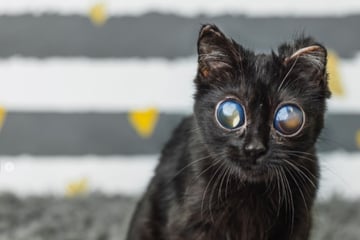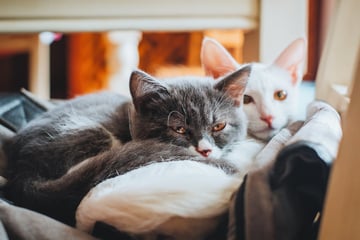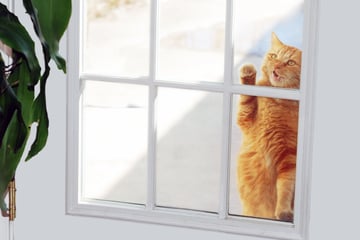Why doesn't my cat purr and should I be concerned?
Cats purr constantly, for a variety of different and often rather adorable reasons. What's up if your kitty stops purring though, should you be concerned? Is something wrong with your feline friend? Let's find out!
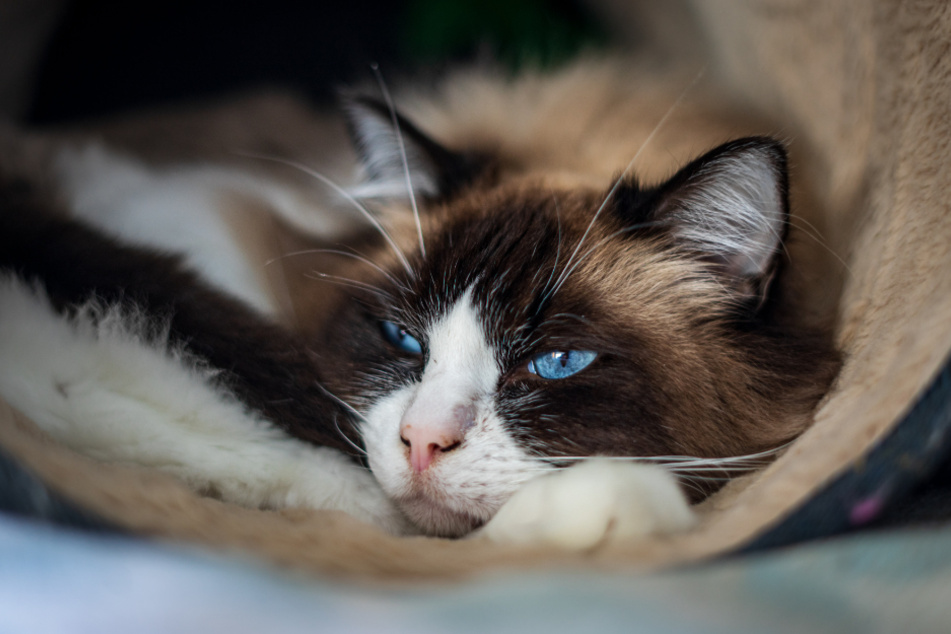
Cats aren't just purring to show you that they're happy or in love with your petting technique. While this is certainly part of the reasoning behind their calming rumbles, ultimately, purring is first-and-foremost a form of communication that has many different meanings.
Purring is a sign of well-being in a cat, but also a way for a cat to calm down, or make its presence known.
Cats purr by vibrating their vocal cords and contracting the larynx while breathing. Different cats purr at different volumes, but you should pay attention if they stop all together. If a cat stops purring, it could indicate a health problem.
What can cause your cat to stop purring, and is it normal? In this cat guide, TAG24 will take you through everything you need to know about purring cats.
Do all cats purr?
While it is very normal for cats to purr, and they will each purr at different frequencies, it is a mistake to think that all cats purr. In reality, some cats purr loudly, some softly, and some don't purr at all. The issue is when a cat that usually purrs stops purring for a long period of time. In such a case, it could be due to a health problem.
Why doesn't my cat purr anymore?
If your fluffy little kitty has noticeably stopped purring lately, you should think about why. Cats can get rather sick without you even knowing it, and when this happens, your feline friend might just seem to be keeping quiet and acting normally.
That process of "shutting up" could involve your cat not purring when it usually would. This being the case, it's a good idea to get a picture of what the cause could be.
Cat stopped purring | Maybe it's uncomfortable
Let's be real - cats are known to be a bit wimpy. They get stressed super easily, and there's a reason behind the term "scaredy-cat". As such, this wimpiness can also be attributed towards a cat who has stopped purring.
Maybe it's uncomfortable, stressed, or feeling unsafe. Or, perhaps it's just not sitting on as comfortable a couch as its delicate needs desire. Even the smallest of discomforts can annoy the living hell out of a kitty, so get ready for some tantrums – or some silent treatment.
Here are a few possible stress triggers that may cause your cat to stop purring for a period of time:
- New family members have joined the household (a baby or a partner)
- A new animal has joined the household
- There has been a change in its food or diet
- You have moved houses or apartments
- Your home is undergoing renovations, or you have new furniture
- A human or animal death in the family (or perhaps someone has moved out)
- You are using different cat litter
If your cat is stressed out, then you should give some time to get used to whatever is causing this stress. Don't despair, your kitty will get used to the changes and be back to normal before you know it!
Keep in mind: Cats will often purr to calm themselves down, so if they are purring, that doesn't necessarily mean that they are relaxed. They are simply trying to be relaxed.
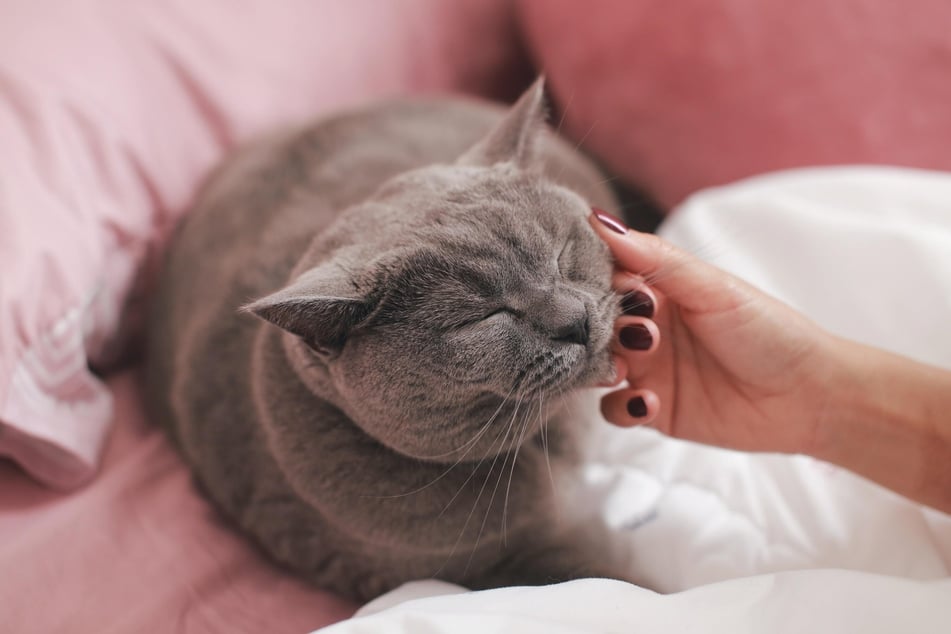
Cat stopped purring | Maybe it's sick
If your cat suddenly stops purring when it would usually be, it could be unwell. Such behavior can be caused by pain, diseases of the larynx, or some other health problem. This is especially a concern in older cats, who may not be purring as often as they used to.
This is not, however, a definitive symptom. Instead of rushing to a conclusion, a cat owner should monitor their pet and determine if there are any other symptoms of concern. Additionally, all cats should have regular check-ups at the veterinarian.
Other signs of health problems in cats can include:
- If your cat is not eating or drinking
- Maybe your cat is limping or walking funny
- If your cat is withdrawing unusually often
- If your cat is listless
- Vomiting and/or diarrhea in cats
- If your cat's fur is dull or shedding at an alarming rate
This is not a fully exhaustive list, and there are many other potential symptoms to illness in cats. If you have any suspicion that your cat might be unwell, make sure to take it to the vet.
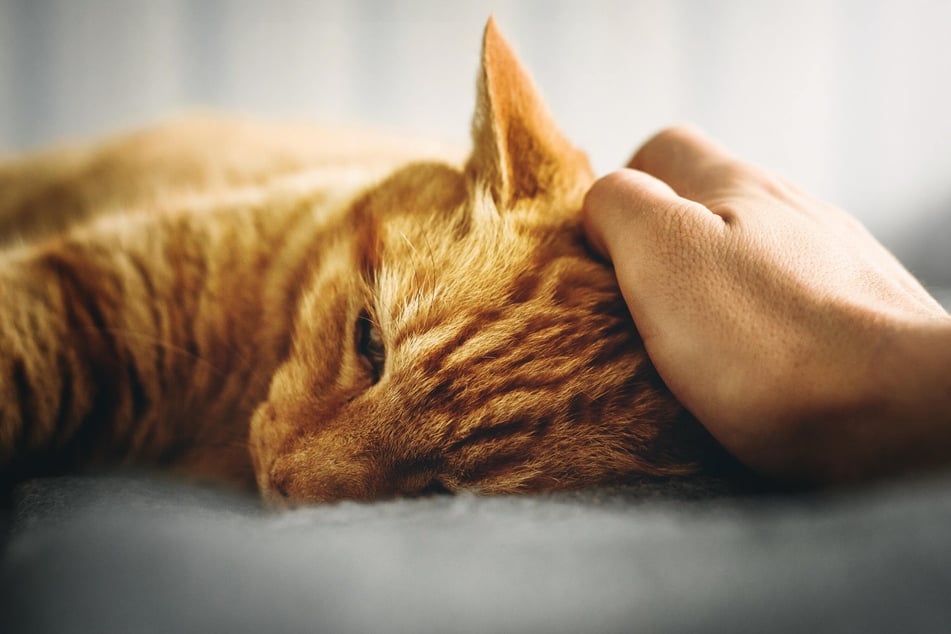
Why doesn't my kitten purr?
While your new cat or kitten's arrival may be an incredibly exciting and happy time for you, it will be a little different for the kitty itself. For a new cat, these first few days and weeks can be incredibly frightening and stressful.
You may notice during this time that your kitten or new cat isn't purring all that much. It could simply be stressed or scared, and not yet acclimated to the new situation and place. Try not to worry too much.
If this lack of purring goes on for too long, though, it could indicate something else. Keep an eye out for a couple of these explanations.
Kitten won't purr | Removed from mother too soon
If your kitten doesn't purr, it could be because it was removed from its mother too soon and hasn't been socialized correctly. The thing is, cat mothers actually purr to soothe their offspring, and their kittens will then imitate that purring sound and associate it with positive, warm, and comforting things. In other words, with happiness.
In the case that a poor feline friend has been separated from its mother too early, it could be that it hasn't learned to purr, and could sadly be a lifelong ailment.
Kitten won't purr | Not ready yet
Has your cat or kitten recently moved in, but is still seeming a little bit insecure and fearful? Well, that could explain why it isn't purring. It can take a while for your cat to feel safe and comfortable in a new environment, and to become trustful of its humans.
If your kitty has perhaps come from a different household, or from an animal shelter, this could also explain its silence. Maybe it's not ready to make sound yet, or maybe your cat is still working through some bad experiences or trauma.
You can't push your cat to "be happy," it just simply won't work. Give it a safe space, give it a nice and peaceful environment, make it comfortable, and it will be purring very soon.
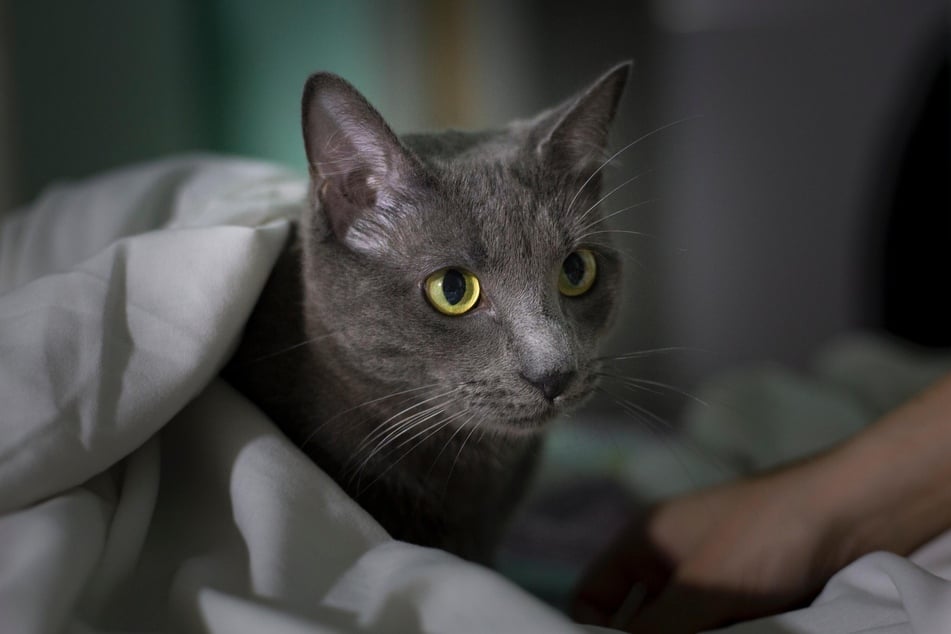
Kitten won't purr | It can't
Not all cats can purr in general. If you have never heard your kitten or even fully-grown cat purr, this could well be the case. A cat's inability to purr can be caused by anatomical issues, and usually a malformation of its vocal cords or larynx.
In such a case, your vet will surely be able to pick up on anything abnormal quite easily. They will also be able to assess the situation and let you know if the issue could result in future health problems.
What to do if your cat stops purring
There are so many reasons why a cat might stop purring, and you shouldn't get too worried if it happens. That being said, caution is always the best course of action when it comes to your pet. If you are concerned, and if your kitty is behaving strangely, see a veterinarian.
When it comes to the purring itself, as long as there are no other behavioral problems or health issues, there is nothing wrong with a cat who isn't purring. Try not to freak out – leave that to your kitty.
Cover photo: Unsplash / Ajeet Panesar
